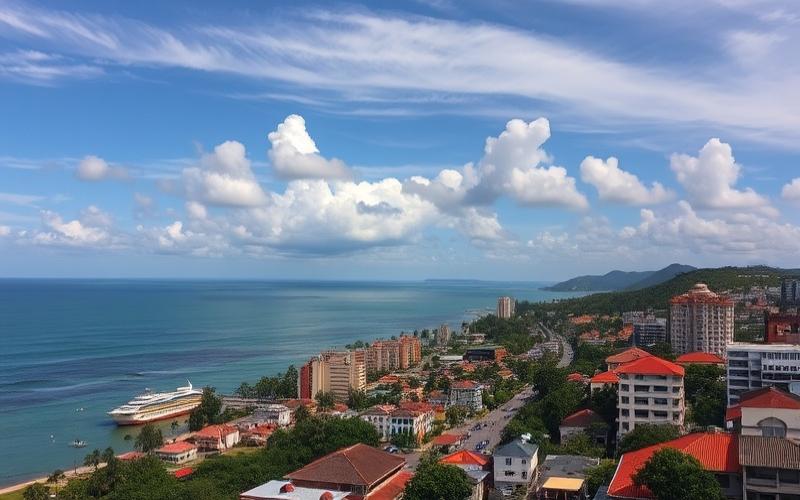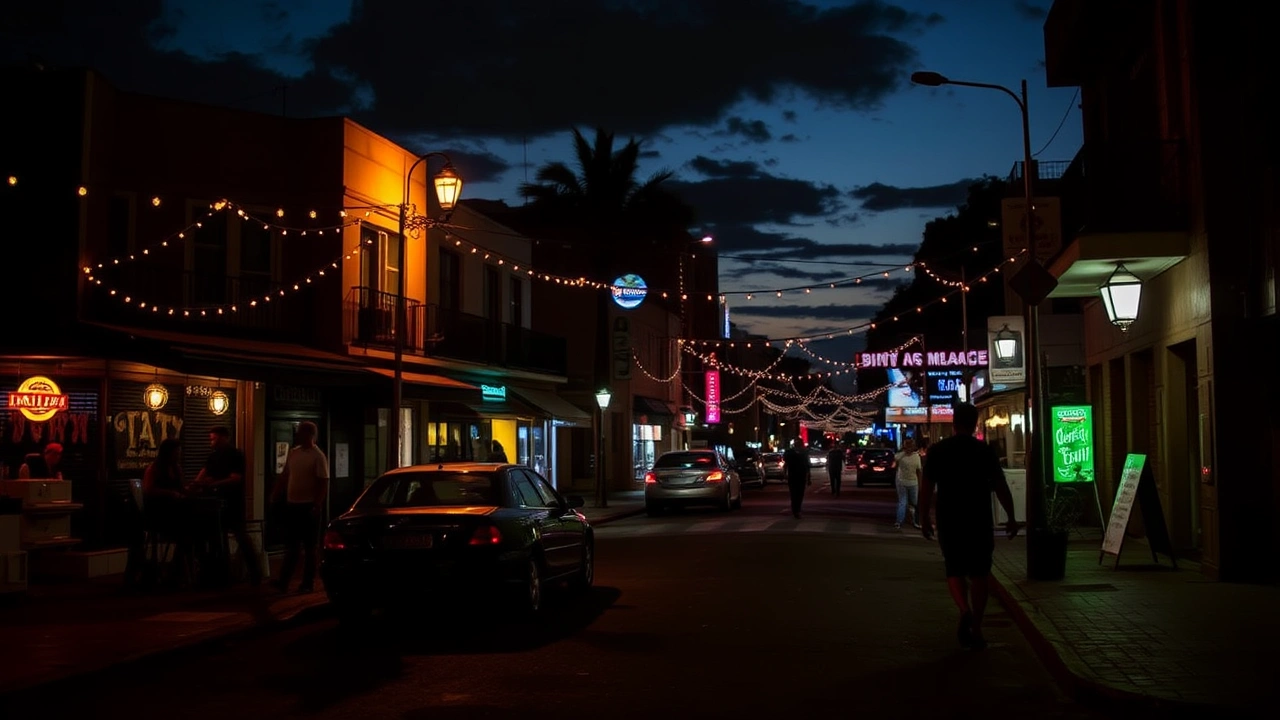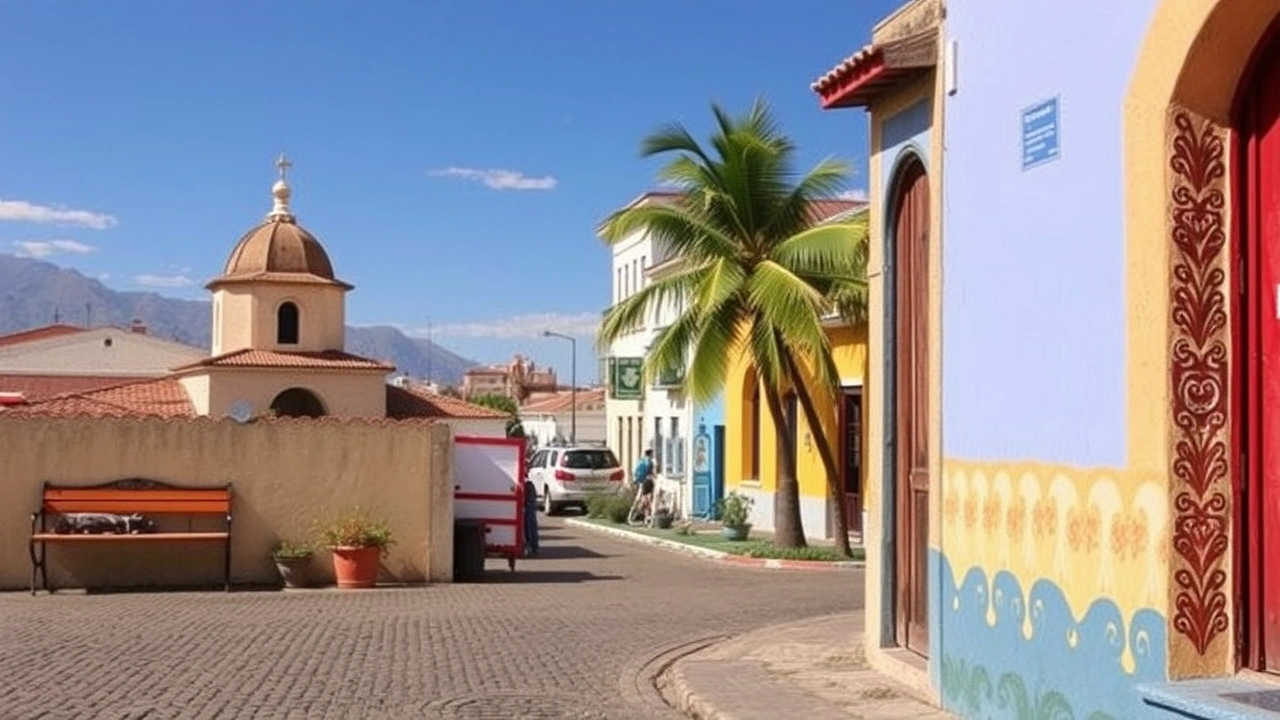
 Published on and written by Cyril Jarnias
Published on and written by Cyril Jarnias
The Dominican Republic Real Estate Market: Between Dream and Reality
In a rapidly expanding real estate market like the Dominican Republic, buying property can be a dream come true for many investors and expatriates. However, reality often differs from expectations, especially when influenced by retouched photos that enhance online listings.
These carefully modified images, designed to catch the eye, can hide significant flaws, trapping inattentive buyers in a sometimes staggering gap between virtual representation and the property’s actual condition.
How to Avoid Visual Traps?
Delving into this increasingly common practice, it’s crucial to understand how to avoid these visual traps and make informed purchasing decisions.
Good to Know:
To avoid unpleasant surprises, always prioritize an on-site visit or request a live virtual tour with the real estate agent.
Deciphering Real Estate Listings in the Dominican Republic
Tips for Evaluating Photos in Dominican Republic Real Estate Listings
- Carefully examine images to identify signs of retouching or enhancement. Photos that are too bright, have saturated colors, or excessive sharpness may indicate the use of filters or editing software. Blurry or distorted elements (curved walls, erased objects) are also frequent clues.
- Consider the consistency between photos: noticeable variations in lighting or decor from one image to another may signal that certain rooms don’t match the actual property.
- Spot hidden areas: unusual shooting angles or tight framing can conceal defects (moisture, cracks, poor exposure).
- Be wary of overly perfect or generic photos, which may come from other properties or stock image banks.
Commonly Used Technologies to Enhance Images
| Technology | Common Usage |
|---|---|
| Adobe Photoshop, Lightroom | Color correction, defect removal, light enhancement |
| Instagram filters, Snapseed | Color saturation, sharpness enhancement |
| HDR (High Dynamic Range) | Artificial balancing of dark and bright areas |
| Mobile applications | Quick correction, removal of unwanted objects |
Common Real Estate Staging Practices
- Home staging: adding designer furniture, trendy accessories, light and bright textiles.
- Temporary decoration: fresh flowers, candles, temporary artwork.
- Organization and decluttering: rooms emptied or cleared to create an impression of space.
- Use of mirrors: to visually enlarge spaces.
- Light optimization: shooting during the brightest times of day.
Essential Recommendations
- Always request additional photos taken from different angles and at different times of day.
- Demand unedited raw photos if any doubt remains.
- Prioritize listings offering a virtual tour or live video conference to verify the property’s actual condition.
- If possible, arrange an on-site visit or hire a certified local agent.
Testimonials from Buyers and Tenants in the Dominican Republic
“The apartment photos seemed perfect, but in reality, the view was obstructed by a neighboring building. I realized the perspective had been altered with software. Fortunately, I had requested a video before signing.”
“I almost rented a villa that appeared bright and spacious in the images. During the virtual tour, I noticed the living room was much smaller: the owner had used a wide-angle lens and saturation filters.”
“After insisting on getting additional photos, I discovered moisture stains behind furniture that didn’t appear in any of the initial listing photos. This saved me from an unpleasant surprise when purchasing.”
Key Takeaways:
It’s crucial to remain vigilant about overly perfect images, prioritize transparency, and multiply information sources (unedited photos, virtual tours, testimonials) before making a real estate decision in the Dominican Republic.
Good to Know:
When evaluating real estate listings in the Dominican Republic, it’s crucial to know that photos can be misleading, often retouched using software like Photoshop to enhance property appearance. Look for retouching clues such as unnaturally perfect wall lines or perspectives. Systematically request additional photos from various angles, or better yet, opt for a virtual tour to verify image accuracy. Pay attention to staging setups, as some agents use temporary furniture and decorations to beautify the property. One buyer reported discovering during a visit that a garden was much smaller than in retouched photos, while another rented an apartment that bore no resemblance to images enhanced with bright filters.
Avoiding Scams with Simple Tips
Vigilance when viewing real estate photos in the Dominican Republic is paramount, as published images can often give a misleading impression about a property’s actual condition or quality.
Common Retouching Techniques
- Excessive color saturation to make the environment more attractive.
- Artificial brightness enhancement to illuminate dark or narrow rooms.
- Digital imperfection removal, such as cracks, moisture stains, or furniture defects.
- Virtual addition of furniture and decorations (digital home staging) that aren’t part of the property being sold.
Tips to Avoid Disappointment
- Systematically request a live virtual tour (video conference) or better yet, a physical visit. This allows comparing every detail with initial photos and quickly identifying any discrepancies.
- Carefully read written descriptions: they should detail not only advantages but also clearly mention the property’s general condition and any potential defects. Vague descriptions are a warning signal.
- Research the neighborhood with reputable local agencies known for their seriousness: they have perfect knowledge of the Dominican market and can inform you about the immediate environment, security, and nearby infrastructure.
Tips for Spotting Typical Photo Retouching Signs
- Unusually vibrant colors that don’t match local natural light
- Missing shadows when multiple light sources are visible
- Inconsistent reflections in mirrors or windows
- Rooms appearing disproportionate to standard furniture
- Uniform textures hiding wall irregularities
It’s strongly advised to consult an experienced professional in the Dominican real estate market:
A reputable local agent will detect any suspicious photographic manipulation and can organize thorough verification before any commitment.
| Points to Verify | Why It’s Important |
|---|---|
| Compare photos/visit | To detect obvious discrepancies |
| Analyze colors/brightness | To spot excessive retouching |
| Read complete description | To anticipate hidden defects |
| Consult professional agency | To secure the transaction |
In summary: Never rely solely on digital appearances; always cross-reference visual information, descriptions, and verify on-site with local experts before any important decision.
Good to Know:
In the Dominican Republic, it’s essential to exercise vigilance when viewing real estate property photos, as they can be retouched to give a false impression of the property’s condition or quality. Overly vibrant colors or irregular brightness can be signs of common retouching. To avoid unpleasant surprises, always request virtual or physical tours that allow comparing images to reality. It’s also crucial to carefully read descriptions and research the neighborhood. The support of real estate professionals can be valuable, as they possess the expertise to detect potential deception and ensure investments are made with confidence.
Verifying the Authenticity of Real Estate Listings
To verify the authenticity of real estate listings in the Dominican Republic, it’s essential to arm yourself with reliable methods to avoid traps related to retouched photos and false information.
Detecting Retouched or AI-Generated Photos
- Use specialized tools such as Sightengine, which detects if an image has been manipulated or generated by artificial intelligence, providing a probability rate and suspicious elements (for example, inconsistencies in faces or unusual textures).
- Employ reverse image search via Google Images: this helps identify if the photo used comes from another website unrelated to local real estate.
- Utilize the Fact Check Explorer service to upload an image and consult its internet history along with verifications already performed by independent organizations.
- Refer to platforms such as IMATAG that offer detection of invisible digital watermarks proving a photo’s authentic origin.
Crucial Importance of In-Person Visits
Systematically request a physical visit of the real estate property allows:
- Direct comparison of the actual condition with that presented in images.
- Observation of the neighborhood, immediate environment, and any defects masked by advantageous framing or excessive photo processing.
Complementary Tools for Context Verification
| Tool | Main Functionality | Recommended Usage |
|---|---|---|
| Google Earth | Satellite visualization of neighborhood/land | Environment comparison |
| Reverse Search | Find origin/previous usage | Detect fraudulent reuse |
| Fact Check Explorer | Contextual verification of an image | Identify known manipulations |
Verification of Real Estate Agency or Seller
- Search the business name on Google to consult reviews left by other clients (be cautious if completely absent or majority negative).
- Verify that the agency actually has an official license issued locally; request the number then check with competent Dominican authorities.
- Analyze digital presence: professional website, complete contact information, existence on official social networks.
Warning Signals Indicating Potentially Fraudulent Listings
Watchlist:
- Price significantly below market without clear justification
- Overly perfect photos (complete absence of defects) or blurry/cropped images
- Missing essential information: precise address, exact square footage, legal documents not provided
- Seller’s repeated refusal to organize a physical visit
- Suspicious urgency imposed in decision-making
⚠️ Be vigilant about offers that seem too good to be true! Analyze each listing rigorously before any steps.
Good to Know:
When exploring real estate listings in the Dominican Republic, it’s crucial to verify photo authenticity to avoid traps of retouched images; online tools like Google Images help detect suspicious modifications. Always demand an in-person visit to corroborate the property’s actual condition and be wary of listings with abnormally low prices or vague descriptions. To ensure seller or agency legitimacy, consult online reviews and verify real estate licenses with competent authorities. These precautions help uncover fraudulent listings and guarantee secure transactions.
Realistic Virtual Tours: An Essential Tool
Immersive virtual tours allow real estate buyers in the Dominican Republic to avoid common traps of retouched photos by providing faithful and comprehensive property representation. Unlike traditional photos, often modified to hide defects or artificially enhance a property, virtual tours restore each space in its actual dimensions, perspectives, and authentic details. This significantly reduces the risk of disappointment during physical visits, as the buyer has already explored every corner of the property realistically.
Technologies Used for Authentic Experience
- High-definition 360° cameras
- Virtual reality (VR) solutions enabling tours with headsets or screens
- Panoramic shots and 3D modeling
- Integration of interactive plans and precise measurements
Key Advantages of Immersive Virtual Tours
| Aspect | Immersive Virtual Tour | Traditional Photos |
| Fidelity to Reality | Very High | Often Retouched |
| Perception of Space | Yes, Total Immersion | Limited, Distorted |
| Transparency | Maximum | Sometimes Misleading |
| Buyer Engagement | Strong | Weaker |
| Buyer Selection | Qualified | Unqualified |
The “photo not contractual” disclaimer doesn’t exist in virtual tours: the buyer discovers the property as it really is, without artificial enhancement.
Transparency and Increased Satisfaction
- The buyer has a comprehensive, honest, and precise view of the property, building trust and accelerating decision-making.
- Transparency offered by virtual tours improves customer satisfaction and reduces unnecessary physical visits.
- Professionals save time and select genuinely interested candidates.
Concrete Examples in the Dominican Republic
- Vision HD in Las Terrenas offers 3D virtual tour services to enhance properties and increase buyer engagement. They observe accelerated sales processes and better listing visibility.
- Several local proptech agencies, such as AlterEstate, integrate immersive tours into their cloud platforms, allowing clients to evaluate properties remotely with full transparency.
- User feedback highlights ease of access, ability to compare multiple properties without travel, and a much more reliable purchasing experience.
Feedback from Professionals and Users
- Real estate agents report significant time savings and reduction in unqualified physical visits.
- Buyers appreciate being able to explore properties at their own pace and visualize more easily, fostering a climate of trust.
Summary of Benefits
- Authentic and immersive experience
- Reduced surprises and disappointments
- Maximum transparency and accelerated sales
- Professional property valuation, adapted to international market expectations
Good to Know:
Realistic virtual tours prove to be an essential tool for bypassing traps of retouched photos in Dominican Republic real estate. Through advanced technologies like 3D capture and virtual reality, these immersive tours offer potential buyers an authentic view of properties, allowing precise evaluation of dimensions and actual condition without the frequent distortion of digitally manipulated photos. Platforms like Matterport or local companies such as Propiedades RD have adopted these technologies, receiving positive feedback from both buyers and industry professionals for the increased transparency and customer satisfaction they bring. Unlike traditional photos, often enhanced, virtual tours enable detailed exploration of each room, ensuring more informed purchasing decisions and reducing surprises during physical visits.
Disclaimer: The information provided on this website is for informational purposes only and does not constitute financial, legal, or professional advice. We encourage you to consult qualified experts before making any investment, real estate, or expatriation decisions. Although we strive to maintain up-to-date and accurate information, we do not guarantee the completeness, accuracy, or timeliness of the proposed content. As investment and expatriation involve risks, we disclaim any liability for potential losses or damages arising from the use of this site. Your use of this site confirms your acceptance of these terms and your understanding of the associated risks.























































